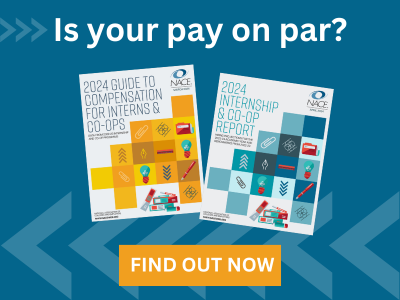Visa’s large-scale internship program is increasingly focusing on connecting with students earlier in their academic careers to bolster its diversity, equity, and inclusion (DEI) efforts and offering its interns valuable in-person interactions and experiences.
For its North American operations, Visa hired 320 interns in 2022, 62% of whom were hired post-program. That was up from a 2021 conversion rate of 59%.
Phill Haig, Visa’s director of early career programs, says that with its early career program, but particularly with its internships, Visa focuses on early engagement.
“We find that hiring diverse talent is easier to accomplish the earlier we can engage them,” Haig says.
“While we focus primarily on penultimate year students for our internship program, we are increasingly hiring students who are juniors to offer them returning internships because we find, especially throughout technology organizations, accessing underrepresented talent is easier earlier on in their academic careers when there’s less competition for them.”
It's also critical for building a long-term pipeline of top talent.
“We want to go after very high-potential people,” Haig says.
“The competition for this talent is particularly fierce if we’re waiting until their final year of university. Often, these students are locked into offers with other organizations. By engaging them earlier, we are also creating a network of brand evangelists who are able to advocate for Visa on campus and build strong word of mouth. We found that a high percentage of our applicants were influenced by their peers.”
To achieve these hiring goals, Visa has built a solid internship program experience that addresses four main aspects:
- Building interns’ business knowledge of both the payments industry and of Visa;
- Building interns’ skills;
- Offering tangible training and development opportunities for career growth; and
- Building community and fun.
“By doing this, we are giving our interns a rich, enjoyable, valuable experience over the course of the summer,” Haig says.
“We don’t just focus on the programmatic experience; we focus on the in-role experience of each intern. We drive manager engagement and project alignment, and ensure they are delivering impactful work. If interns don’t feel as though their work matters, they are less likely to return to the organization.”
The biggest challenges, Haig notes, often include workforce planning.
“These [challenges] include making sure that we have a commitment for conversion for the business and we’re not getting into a position where we have interns who performed well and offer strong talent, but we don’t have positions to offer to them,” he says.
“It’s important for us to have positions to offer while these talented interns are still with our organization. We try to get most of our offers out in their final week of the program.”
This past summer, Visa aimed to make 80% of its offers to interns in their final week, with the remaining 20% of offers coming within one month of the program’s conclusion.
“We have a very robust keep-warm strategy in place, from a central perspective and arming our managers with assets and very clear instructions to follow,” Haig explains.
“We remain in month-to-month contact with them throughout the year until they come back to the organization. We also do this to assess risk around offer reneges. If someone isn’t engaging with us during the keep-warm phase, that would signal to our recruiters that they need to assess how invested this individual is. We have been able to identify quite a few who have declined or reneged on offers halfway through the academic year and adjust so it doesn’t impact our headcount.”
Visa begins recruiting interns for the next summer almost immediately after the current summer program ends. Many of the openings will be filled within the first quarter of the academic year because of the different channels Visa employs, such as feeder programs and events.
"Visa's internships offer a unique blend of remote and in-office experiences, with interns spending two days per week on-site for direct exposure to leaders and our culture. What sets Visa apart in this competitive market is its commitment to facilitating these in-person experiences. Visa offers generous relocation packages to interns, including housing in certain locations, and stipends in areas where corporate housing is not available. This demonstrates Visa's investment in their interns and their dedication to providing a comprehensive and enriching internship experience,” Haig notes.
“We increasingly try to ensure that our programming is in person, as well. Last year, 80% of our programming was delivered virtually, while only about 33% was delivered virtually this year.”
He says one of the key lessons he and his team learned during the pandemic is offering flexibility, but providing a clear rationale as to why Visa wants its interns to have in-person experiences.
“Because we see the value in in-person experiences for interns, we want to ensure that the interactions our interns have in the office are meaningful,” Haig says.
“We presented our managers with a very detailed plan for what they should be doing week to week with interns in the office. We also have a buddy system where, for instance, interns and their buddies meet for coffee and discuss the week. These interactions build stronger connections between Visa and our interns.”






